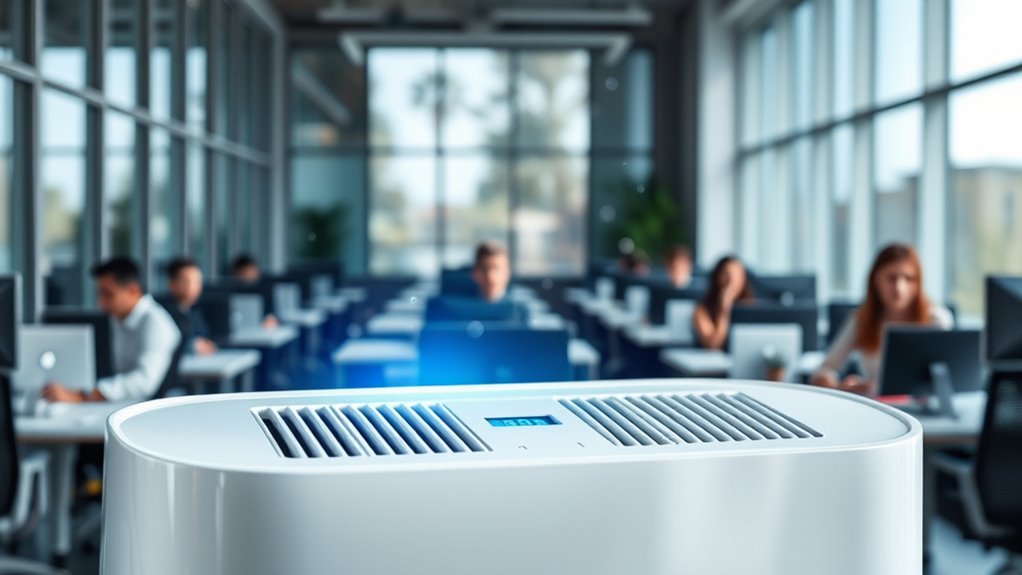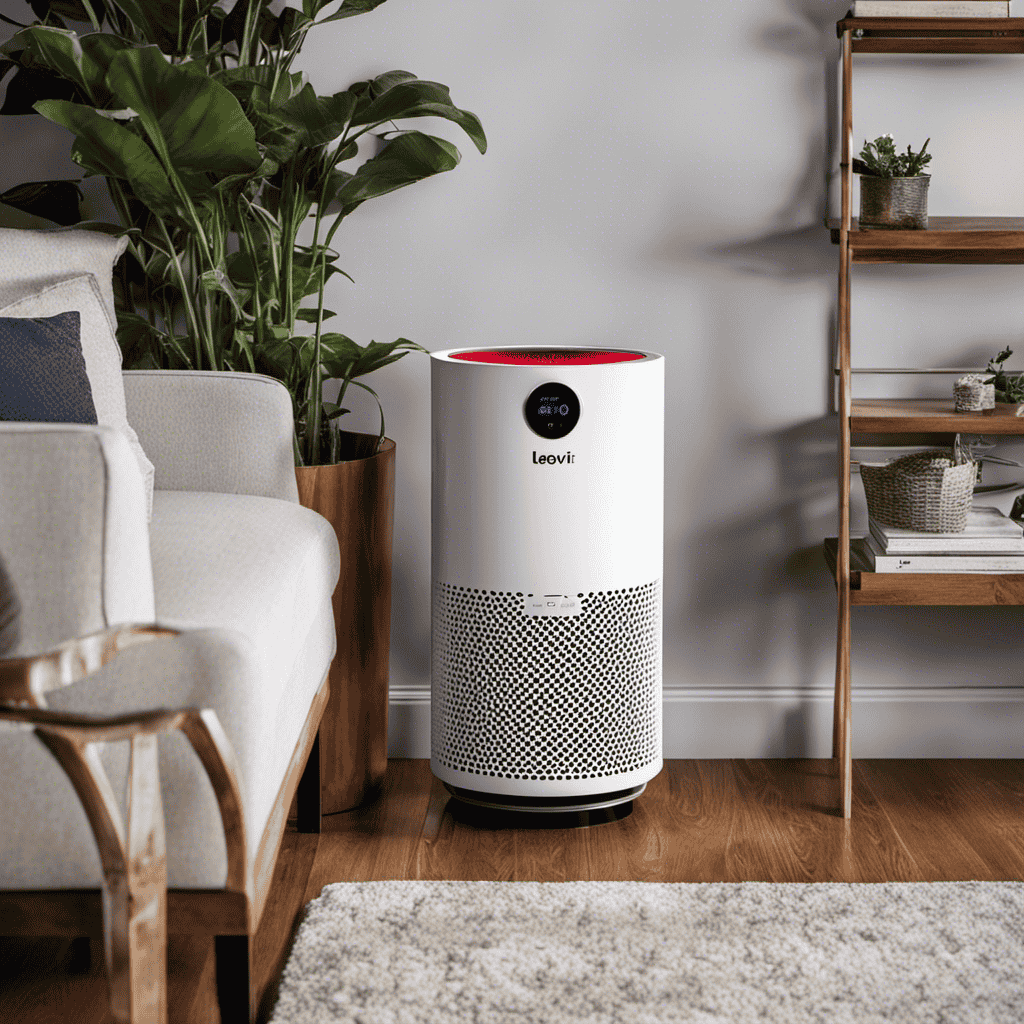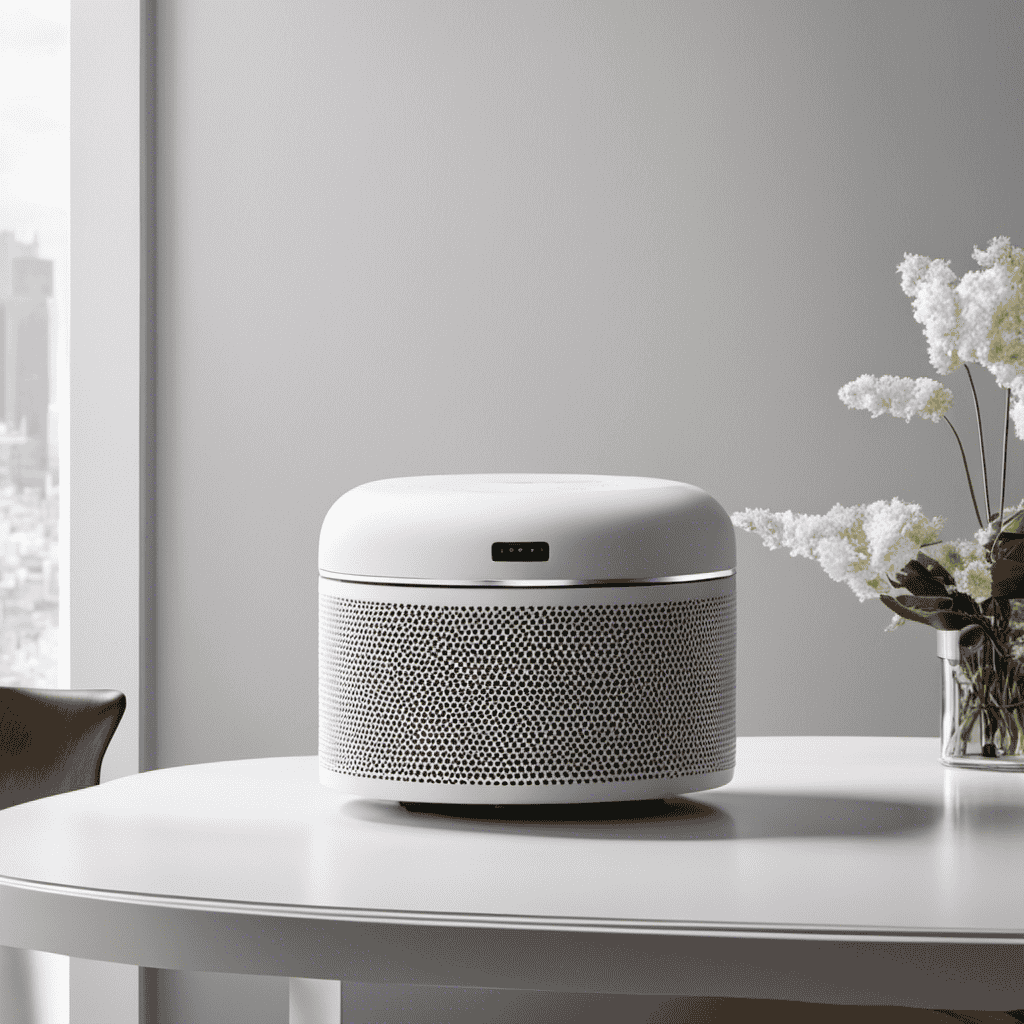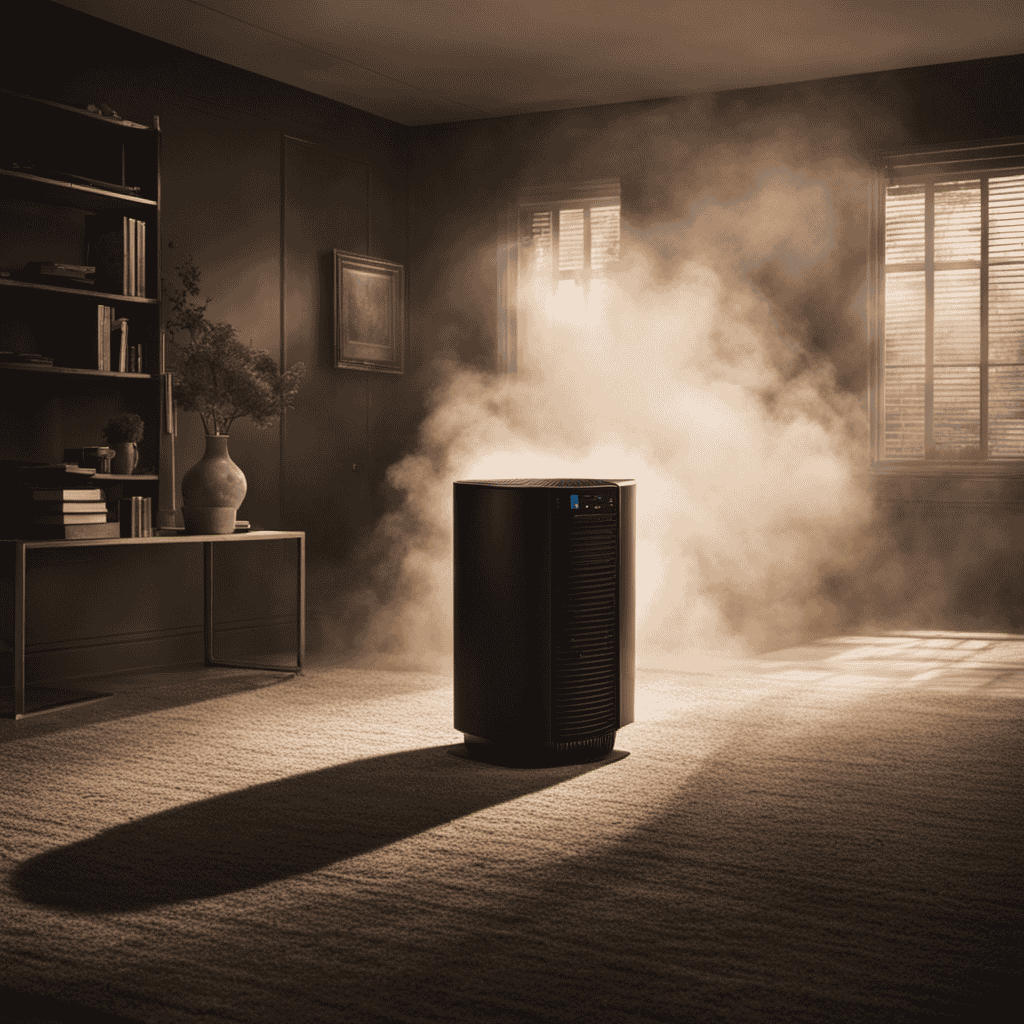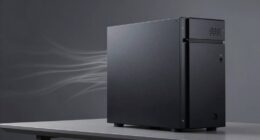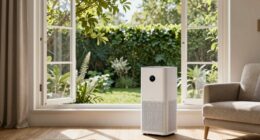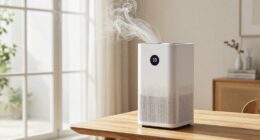Air purifiers help cut the spread of seasonal flu in offices by actively filtering airborne viruses and droplets with high-efficiency HEPA filters. They create healthier indoor environments by reducing viral particles and improving air quality. Continuous use of these devices adds an extra layer of protection alongside other safety measures. To discover more about how purifiers can keep your workplace safer during flu season, keep exploring the benefits and best practices.
Key Takeaways
- HEPA filters trap airborne flu viruses, reducing their presence in office environments.
- Continuous air purification lowers viral load, decreasing the risk of inhaling infectious droplets.
- Air purifiers complement hygiene practices, providing an extra layer of protection against flu spread.
- Using purifiers in shared spaces minimizes airborne transmission during peak flu seasons.
- Implementing air filtration improves overall air quality, supporting a healthier, safer workplace.

Have you ever wondered if air purifiers can help reduce the spread of the flu? The answer is yes, especially when it comes to improving air quality and controlling virus transmission in office environments. During flu season, workplaces become hotspots for germs, and the airborne nature of the flu virus makes it particularly challenging to contain. However, using air purifiers can be a practical solution to help minimize these risks. By actively filtering out airborne particles, including viruses, air purifiers contribute to better air quality, which is essential for maintaining a healthier workspace. When the air is cleaner, your team is less likely to inhale infectious droplets that can lead to illness.
Air quality improvement is the primary benefit of installing air purifiers in an office. These devices typically use HEPA filters, capable of capturing particles as small as 0.3 microns, which includes many airborne viruses. As people move around, cough or sneeze, tiny droplets containing viruses are released into the air. Without proper filtration, these droplets can linger, increasing the chance of someone else inhaling them. An air purifier continuously pulls in contaminated air, trapping these particles, and releasing cleaner air back into the room. This cycle reduces the overall viral load in the environment, making it less likely that the flu will spread from person to person.
HEPA filters trap airborne viruses, reducing flu spread and improving office air quality.
Virus transmission control becomes more effective when you incorporate air purifiers into your office strategy. While hand hygiene and surface cleaning are essential, airborne transmission requires a different approach. Air purifiers actively reduce the concentration of infectious particles in the air, cutting down the number of viruses that can reach your coworkers. This is especially helpful in shared spaces like conference rooms, break areas, or open-plan offices, where close contact and poor ventilation can accelerate the spread. Using these devices continuously ensures that the air remains as clear as possible, offering an extra layer of protection against seasonal flu outbreaks.
It’s important to recognize that air purifiers aren’t a standalone solution but part of a complete approach to health and safety. When combined with good hygiene practices, proper ventilation, and vaccination, they greatly enhance virus transmission control. By investing in quality air purifiers, you’re actively creating a safer, healthier environment where the risk of flu transmission is substantially reduced. Ultimately, this not only supports employee well-being but can also decrease absenteeism during flu season, keeping your workplace productive and resilient.
Frequently Asked Questions
Do Purifiers Eliminate All Types of Airborne Viruses?
You wonder if purifiers eliminate all airborne viruses. While purifiers are effective at reducing many airborne viruses, their effectiveness varies depending on the purifier type and filter quality. HEPA filters, for example, can trap most virus particles but may not catch every single one. So, purifiers markedly lower airborne virus levels, but they don’t guarantee complete elimination. Using them alongside other precautions offers the best protection.
How Often Should Office Air Purifiers Be Serviced?
You should service your office air purifiers regularly, following the manufacturer’s maintenance schedules. Typically, filter replacement is recommended every 3 to 6 months, depending on usage and air quality. Regular maintenance ensures the purifier works efficiently to reduce airborne viruses and pollutants. Check filters frequently, and replace them promptly to maintain peak performance and air quality. Staying consistent with filter replacement and maintenance keeps your office environment healthier.
Are There Specific Purifier Models Recommended for Flu Prevention?
They say, “The proof is in the pudding,” so choose purifier models with HEPA filters and UV sterilization for flu prevention. These features effectively trap airborne viruses and kill germs, reducing flu spread. Look for trusted brands that prioritize these technologies, ensuring cleaner air. By selecting the right purifier, you’re actively protecting your office and helping prevent seasonal illnesses from taking hold.
Can Purifiers Improve Overall Employee Health Beyond Flu Prevention?
Improving air quality with purifiers can substantially boost employee wellness beyond just preventing the flu. When you use high-quality purifiers, you reduce airborne pollutants, allergens, and VOCs, creating a healthier workspace. Better air quality helps employees breathe easier, stay focused, and feel more energized throughout the day. As a result, your team experiences fewer health issues, lower sick days, and increased productivity, making purifiers a valuable investment in overall employee health.
What Is the Cost-Effectiveness of Installing Purifiers in Offices?
Ever wondered if installing purifiers is worth it? You need a clear cost analysis to see if the investment return justifies the expense. In offices, purifiers can reduce sick days and boost productivity, saving money long-term. While upfront costs vary, the health benefits often outweigh them, making purifiers a smart, cost-effective choice. You’ll find the real value lies in healthier, more efficient work environments.
Conclusion
By using air purifiers, you can markedly reduce the spread of seasonal flu in your office—it’s like having a superhero fighting off invisible germs. When you prioritize clean air, you’re not just protecting yourself but safeguarding everyone around you. Don’t underestimate the power of a good purifier; it can be the difference between a healthy workspace and an outbreak that spreads faster than wildfire. Take action now, and make your office a fortress against flu season!
